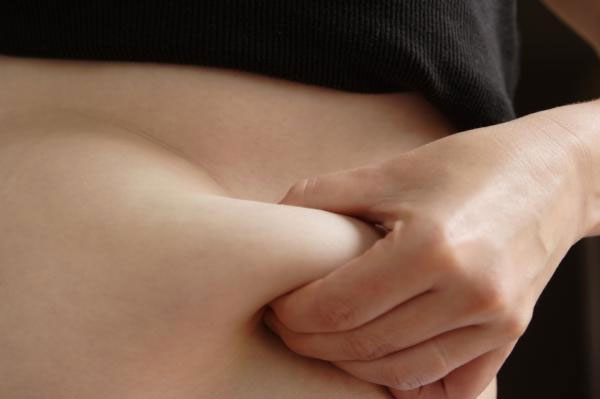Belly fat is not necessarily bad
The fat membrane under our belly until recently has been considered an excess and does not serve many roles. However, medical researchers at Loyola Chicago Stritch University have found that this adipose membrane holds an important task to regulate the immune system.
>>>Abdominal fat stem cells help treat heart disease
This finding paved the way for new drugs in organ transplantation of autoimmune patients such as those infected with Lupus and Crohn's disease.
'We now have evidence that fatty fatty tissue in the abdomen is not just excess fat , ' said Professor Makio Iwashima, the author of the study published on June 6 in PLoS ONE.

The belly fat layer is not completely "redundant" as people think. (Photo: SienceDaily)
Abdominal fat is a membrane that connects the abdomen to all the abdominal organs. It is an archive of fat tissue.
A research group led by Iwashima and the famous lung surgeon Robert Love examined the effects that abdominal fat reaches T cells in mice.
T cells are the first cell line of the immune system against viruses in the human body. Usually they detect attacks and kill bacteria, viruses and other infectious agents. But in infected mice, when activating belly fat with T cells, this cell does not duplicate and dies. Abdominal fat cells only work with T-cells that are resistant to bacteria and harmless to normal T-cells.
Scientists reason, from belly fat cells secrete a special substance down the immune system and prevent the system from functioning. Use of abdominal fat cells reduces side effects compared to currently used drugs in patients receiving lung transplants.
In addition, belly fat cells also have the ability to regenerate damaged tissues, Iwashina said. These cells contain mesenchymal stem cells that migrate to the injured part and regenerate tissue.
During the study, scientists found in tissue culture vessels, belly fat cells can differentiate into bone or lung cells. Iwashina believes that these fat cells could be the decisive organ for tissue repair and regeneration.
The study was supported by the National Institutes of Health and Van Kampen Cardiovascular Research Foundation.
- Science proves: Men with big belly are new love of the new era
- Why is it that almost only men own 'beer belly'?
- Bad habits cause a big belly
- The belly is bigger and more attractive in Ethiopia
- Discovered belly belly dinosaur bones
- Surprised to see the treasure nearly 2 billion in the belly of a pig
- The secret relationship between belly fat and heart disease
- How to check your belly fat or not
- Breast cancer is not necessarily cancer
- The great grief of beer
- Soy milk prevents belly fat
- Surprised by the scientific facts about ... the belly button
 Green tea cleans teeth better than mouthwash?
Green tea cleans teeth better than mouthwash? Death kiss: This is why you should not let anyone kiss your baby's lips
Death kiss: This is why you should not let anyone kiss your baby's lips What is salmonellosis?
What is salmonellosis? Caution should be exercised when using aloe vera through eating and drinking
Caution should be exercised when using aloe vera through eating and drinking